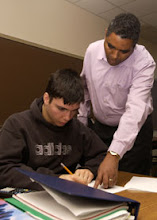One of the great atrocities unleashed on the American mind is the eradication of the lines distinguishing good economics from bad politics.
In introductory courses I distinguish between the end goals of economics and politics. For economics the goal is to maximize the well-being of the majority at the expense of the minority; the opposite is true for politics. Yet the bandwidth for a well-moneyed politician overwhelms that of even the most accomplished economist.
Politicians package the protection of corporate America’s interest as a common good, that is, beneficial to all members of the community. Prostituting themselves to the fortunes of millionaires, politicians propagate Kochism dribble:
1. America must be governed (politics) by the free-market forces (economics).
2. Paying taxes (economics) is tantamount to government extortion (politics).
3. Individuals (politics) have no responsibility to society (economics).
First, economist Jeffery Sachs in his book The Price of Civilization (2011) clarifies that all great promoters of free-market forces acknowledge a role for government.
“…Adam Smith, John Maynard Keynes, Paul Samuelson, Friedrich Hayek, and Milton Friedman, were fully aware of the reality of public goods, environmental spillovers, and asymmetric information and therefore of the need for government to be deeply engaged in public education, road building, scientific discovery, environmental protection, financial regulation, and many other activities. None ever denied a major role for government in a market system. That’s true not only for Keynes and Samuelson, who are famous for their championship of mixed economy, but also Hayek and Friedman, who are known for their advocacy of unfettered markets.” (34)
Second, free-market forces are stellar at promoting efficient use of resources and growing income.
Financially, the US is the wealthiest nation on the planet earning 14.5 trillion dollars in 2010—a slow year by some standards. Yet, our national debt stands at 15+ trillion dollars. By one estimate, the national debt has increased an average of $3.93 billion per day since September 28, 2007! < http://www.brillig.com/debt_clock/ > Why? We can afford to pay for civilization right now rather than foisting it off onto future generations. According to the American Society of Civil Engineers' 2009 report card, we are in need of a 2.2 trillion dollars investment infusion to replace or repair our aging infrastructure including roads and bridges ($930 b.), public transit ($265 b.), drinking and waste water treatment ($255 b.),and schools ($160 b.). <http://www.infrastructurereportcard.org/> Our disinvestment is showing up in our declining ability to compete in a globalized market.
Third, free-market forces are notoriously unfair. Those holding a minor advantage at the start of the game end with a major wealth and income advantage.
Today’s headline read: Census shows 1 in 2 people are poor or low- income (15 Dec). That works out to 156, 392,664 million Americans—half the U.S. population! Census data, according to the news release, depicts “a middle class that's shrinking as unemployment stays high and the government's safety net frays. The new numbers follow years of stagnating wages for the middle class that have hurt millions of workers and families.”
Today’s headline read: Census shows 1 in 2 people are poor or low- income (15 Dec). That works out to 156, 392,664 million Americans—half the U.S. population! Census data, according to the news release, depicts “a middle class that's shrinking as unemployment stays high and the government's safety net frays. The new numbers follow years of stagnating wages for the middle class that have hurt millions of workers and families.”
Blurring economics as politics is the deadly elixir that got us where we are today! Columbia University economist Jeffery Sachs argues “[o]nly markets and government operating as complementary pillars of the economy can produce the prosperity and fairness that we seek.” (179)
And paying for civilization is a choice, a choice of responsible governance, a choice that recognizes the truth of WAIT-T!
 Kay Strong, Ph.D., Southern Illinois University, M.T., University of Houston, M.A., Ohio University; Associate Professor at Baldwin-Wallace College; Areas of expertise: international economics, contemporary social-economic issues, complexity and futures-based perspectives in economics. E-mail: kstrong@bw.edu
Kay Strong, Ph.D., Southern Illinois University, M.T., University of Houston, M.A., Ohio University; Associate Professor at Baldwin-Wallace College; Areas of expertise: international economics, contemporary social-economic issues, complexity and futures-based perspectives in economics. E-mail: kstrong@bw.edu

No comments:
Post a Comment